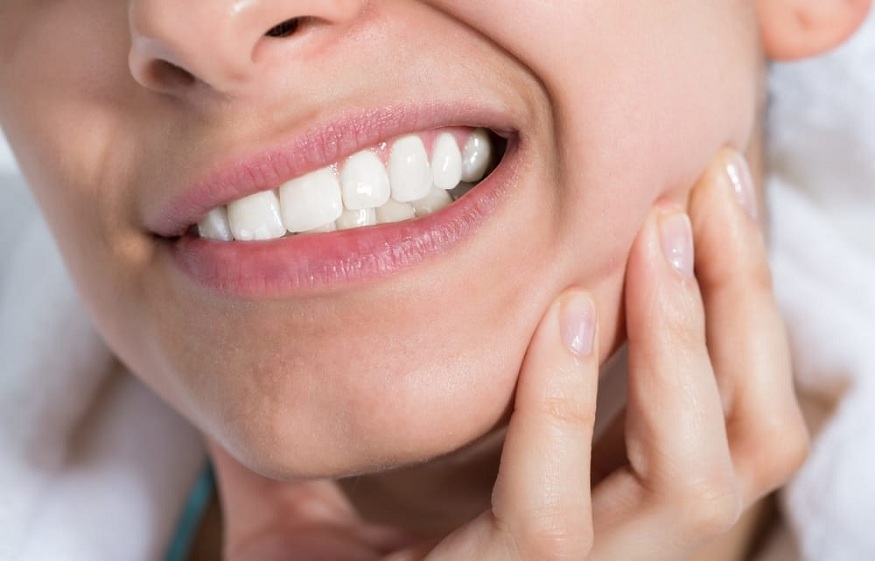Grinding & Clenching Your Teeth: When Bruxism Takes Hold Of Your Life

Bruxism, the medical term for tooth grinding and clenching, can significantly impact daily life. Reasons for this involuntary action vary, with factors such as stress, sleep habits, and diet playing a role. From tooth scraping to jaw pain and headaches, the consequences of bruxism can be distressing.
The topic exploresbruxism’s complexities, causes, symptoms, and potential treatment options, offering valuable insights for those affected by this condition.
1. Hidden Triggers
Various hidden triggers influence bruxism, characterised by teeth grinding and clenching. Identifying these triggers is essential in effectively managing and treating bruxism. Factors such as stress, sleep habits, diet, and even personality traits can contribute to the involuntary action of teeth grinding and clenching. Understanding these underlying causes allows dental professionals to tailor treatment plans accordingly.
It’s crucial to note that treatments for bruxism involve directly addressing clenching and grinding by first identifying the hidden triggers specific to each individual. Through a thorough examination and patient communication, professional dentists can identify the contributing factors and develop personalised strategies to mitigate bruxism’s impact. Targeting these triggers provides comprehensive care, improving bruxism management and oral health.
2. Impact on Daily Life
The symptoms of teeth grinding and clenching, including tooth scraping, jaw pain, muscle tension, and headaches, can disrupt daily routines and cause discomfort. It often compromises sleep quality as teeth grinding and clenching occur during sleep, disrupting sleep patterns for the affected individual and their bedroom partner.
Eating and speaking may become challenging due to jaw pain and muscle tension. Chronic pain and discomfort can lead to irritability, mood swings, and reduced quality of life. Also, the visible effects of tooth wear can affect self-esteem and confidence. Addressing bruxism is crucial to mitigate its impact on daily life.
While late night grinding in a disco is pleasurable in the realm of night-time entertainment, the unintentional grinding and clenching of teeth require professional help from dentists specialising in bruxism. That helps provide effective bruxism treatment and management strategies, improving overall well-being and restoring daily functionality.
3. Signs and Symptoms
Recognising the clues of teeth grinding and clenching is crucial in identifying and addressing this condition. Common indicators include worn-down teeth, evident by flattened tooth surfaces, and tongue indentations due to repeated pressure. Individuals with bruxism report frequent headaches, often originating from the increased tension in the jaw muscles.
Bruxism can manifest in various ways, extending beyond the oral cavity. Symptoms such as earaches and insomnia can occur due to the strain on the jaw and associated muscles. Inflammation in the TMJ can further contribute to discomfort and restricted jaw movement. Individuals may also experience clicking or popping sensations in the jaw joint, known as the TMJ.
Identifying these signs and symptoms allows for timely intervention and appropriate treatment. Dental professionals specialising in bruxism can provide tailored solutions to alleviate the effects of teeth grinding and clenching, improving oral health and overall well-being.
4. Quick Relief Measures and Comprehensive Treatment
Professional dentists will take adequate measures to restore harmony to bruxism. For immediate relief from bruxism-related discomfort, quick intervention is necessary. Cold compresses applied to the jaw can help alleviate inflammation and reduce pain. TMJ exercises and relaxation techniques, such as meditation, temporarily relieve muscle tension and stress.
To prevent further damage, dentists may recommend nightguards or splints. These oral appliances act as a protective barrier, preventing teeth grinding and clenching while managing temporomandibular joint dysfunction (TMD).
Comprehensive treatment for bruxism encompasses addressing the underlying causes and associated complications. Leaving bruxism untreated can lead to long-term dental health risks, including tooth damage, TMJ disorders, and impaired oral function. Seeking reliable dental professionals ensures personalized solutions, transparent pricing, and modern dentistry techniques, safeguarding oral health and enhancing quality of life.
Takeaway
Bruxism can adversely affect various aspects of life, including sleep quality, social interactions, and overall well-being. Recognising the importance of seeking help from experienced dentists specialising in treating teeth grinding and clenching is crucial. By taking immediate action and embracing the necessary changes, individuals can experience a total turnaround in their lives. From improved sleep quality to enhanced social interactions and a reduction in discomfort, comprehensive treatment for bruxism paves the way for a positive transformation and a brighter, healthier future.






